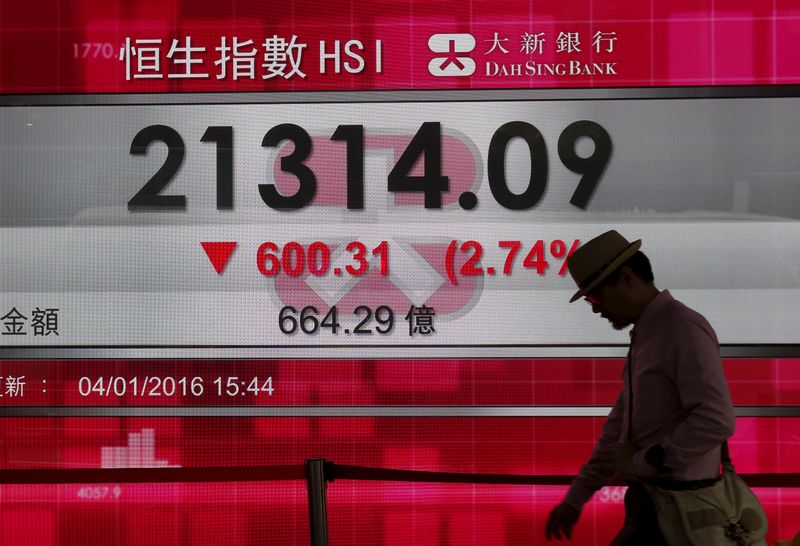Investing.com – Most Asian markets except Hong Kong trended modestly higher Monday morning, as new tariffs kicked in on both sides of the ongoing U.S.- China trade dispute and Hong Kong experienced yet another weekend of violence.
Asian equities are also following the lead of U.S. markets, which closed moderately up on Friday, the last trading day in August but are poised to drop on Tuesday. U.S. markets are closed Monday for the Labor Day holiday. Japan’s Nikkei 225 lost 0.39% by 9:30 PM ET (01:30 GMT). China’s Shanghai Composite started the morning marginally higher, up 0.18% to 2,891 while the SZSE Component was down 0.35% to 9,365. South Korea’s KOSPI was virtually flat, up by 0.03% to 1,968 while Australia’s ASX 200 was also flat but in the red 0.05% to 6,600.
U.S. tariffs on US$110 billion in Chinese imports took effect on Sunday and a set of Chinese retaliatory tariffs also took effect.
Data from China out on Saturday that showed a fall in the official purchasing managers' index (PMI) suggested that the second-largest economy in the world continues to face downward pressure from a combination of trade tension with the U.S. and generally weaker demand. S&P 500 Futures were down 0.6%. The official PMI for August came in at 49.5, down from 49.7 in July.
However, the Caixin China General Manufacturing Purchasing Managers’ Index (PMI), released Monday morning, recorded an increase to 50.4 in August (with a number over 50 signalling expansion) up from 49.9 in July.
Softening the blow, the official non-manufacturing PMI rose for the first time in five months. The National Bureau of Statistics (NBS) said the gauge rose to 53.8 in August from 53.7 in July, staying above the 50 level and showing expansion.
In Hong Kong, markets have been pressured by ongoing political unrest. The weekend saw some of the most intense violence to date, with protesters fighting with police throughout the city, damaging subway stations and forcing stoppages to the city's transit system and engaging in pitched battles with riot police. In turn, police stepped up the pressure with arrests and a more aggressive approach to protests and rallies. Investors were also keeping an eye on the impact of a general strike planned for Hong Kong on Monday.
However, Chinese business publication Caixin reported that investors from mainland China have been buying up Hong Kong stocks, with the value of shares bought surpassing the value of stocks sold for 16 weeks in a row. That's the longest buying streak in about 18 months and coincides with an 8.6% drop in the Hang Seng Index.
Hong Kong’s stock market was the worst performer in the world in August, with a 7.4% fall. All told, the Hang Seng is down more than 15% from a peak of 30, 280 on April 15.
